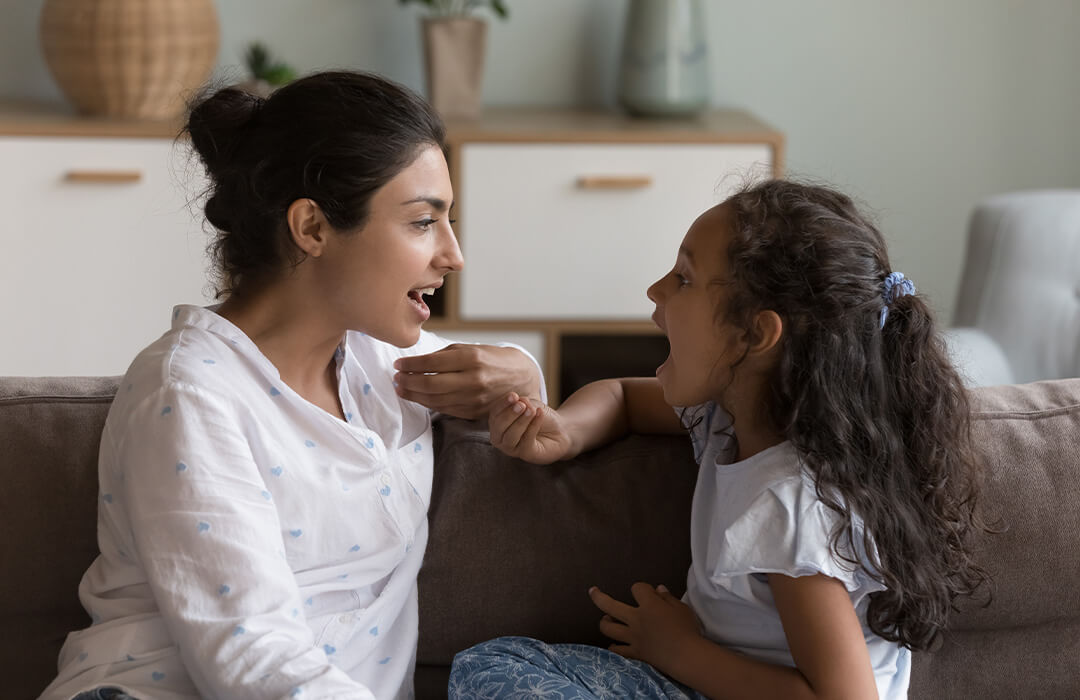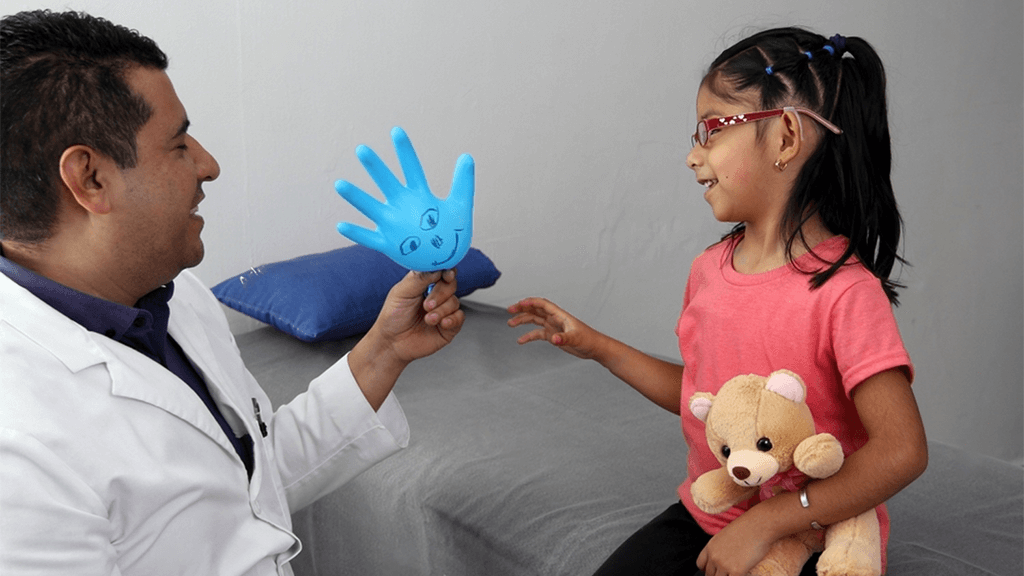Occupational Therapy for Children at RxDx Clinics
Supporting children’s development to help them participate fully in everyday life.
Occupational Therapy (OT) is a child-centric, evidence-based approach that helps children develop physical, sensory, cognitive, and emotional skills needed for daily activities.
OT can provide targeted support to children experiencing difficulties with motor skills, sensory processing, attention or development, by improving their abilities and confidence.
At the Department of Occupational Therapy, RxDx Clinics, we provide personalized therapy plans tailored to each child’s unique needs and strengths, empowering them to engage more effectively at home, school, and in their community.

Occupational Therapist Enquiry Form
Who Can Benefit from Occupational Therapy
- Movement or coordination
- Attention and focus
- Social behavior and emotional regulation
- Sensory sensitivities
- Daily living activities such as dressing, feeding, or writing
- Speech delay or related communication difficulties
- Autism Spectrum Disorder (ASD)
- Attention Deficit Hyperactivity Disorder (ADHD)
- Sensory Processing Disorders
- Developmental Delays
- Cerebral Palsy
- Down Syndrome
- Learning Disabilities
- Neurological or Orthopaedic conditions impacting function
What to expect when you consult Occupational Therapist at RxDx Clinics
Each child receives a comprehensive initial evaluation during their first visit with the Occupational Therapist.
Based on the therapist’s observation and assessment, a personalized therapy plan is developed in collaboration with the family. Therapy often includes in-clinic sessions supplemented with structured home programs.

Individual Paediatric Occupational Therapy
Focused one-on-one sessions designed to improve:
- Fine and gross motor skills
- Sensory integration and regulation
- Activities of daily living including self-care like feeding, dressing, grooming, and tasks like play, schoolwork, etc
- Cognitive development
- Behavioral and emotional regulation
Group Therapy Sessions for Children
Especially beneficial for children who face challenges with social behavior, group sessions are structured to help the child develop:
- Social interaction and peer engagement skills
- Emotional regulation and coping skills
- Following group routines and turn-taking


Parent Counselling and Coaching
We provide guidance and support to parents and caregivers, including:
- Understanding child behavior and sensory needs
- Strategies for home routines and environment
- Emotional support and education
Customized Home Programs
Parents receive detailed guidance on activities and exercises to practice with the child at home, reinforcing therapy goals and promoting consistent progress.


Online Consultations and Therapy
Our Department of Occupational Therapy isn’t limited to Bengaluru. We offer virtual therapy and consultations to families pan-India and some of our clients are settled abroad. Online services include:
- Direct therapy sessions for children
- Parent training and support
- Home program guidance and progress reviews
Meet Our Occupational Therapist
Our paediatric occupational therapists are certified, experienced, and committed to supporting each child’s developmental journey. Sessions are play-based, structured, and tailored to engage children in meaningful ways.

Ms Preethi Shankar
Consultant Occupational Therapist
Bachelor of Occupational Therapy (BOT) (AIOTA Certified)
“We don’t just teach skills—we help children recognise their own abilities.”
Clinic Information
RxDx Clinics, Whitefield
7G, Kundalahalli Main Road
Vishweshwaraiah Industrial Area,
Whitefield, Bengaluru-560048
Timings
11:15 AM – 6 PM
How do I know that my child needs occupational therapy?
If you are concerned about your child’s development or daily functioning, please contact us for a consultation. We are here to provide guidance and support.
Why Choose RxDx?
- Evidence-based, personalized therapy plans
- Certified pediatric occupational therapists
- Multidisciplinary care including pediatricians, physiotherapists, and speech therapists
- Parent involvement and home-based carryover programs
- Structured, play-based sessions with progress monitoring
- Flexible in-clinic and online service options
Frequently Asked Questions
What age groups do you serve?
We provide therapy for infants, toddlers, preschool, and school-age children.
Is a doctor’s referral necessary?
No, you may book a consultation directly. We coordinate with pediatricians if required.
Will my child enjoy therapy?
Yes, sessions are designed to be engaging and supportive.
When will I see improvements?
Results vary depending on the child and frequency of sessions. Many families observe progress within 6–8 weeks.
Can parents participate in sessions?
Yes, parent involvement is encouraged to improve outcomes and support carryover at home.
Conditions Managed with Occupational Therapy
At RxDx, our paediatric occupational therapists work with children across a wide range of developmental, neurological, and functional conditions. Here’s how we help:
Autism Spectrum Disorder (ASD)
What is it?
ASD is a neurodevelopmental condition that affects communication, social interaction, and behaviour. Children with autism may have repetitive behaviours, difficulty engaging in play, or sensory sensitivities.
How OT helps
- Enhances sensory integration
- Improves communication through visual schedules and routines
- Supports independence in self-care tasks
- Builds attention span and social participation through play-based strategies
Attention Deficit Hyperactivity Disorder (ADHD)
What is it?
ADHD affects a child’s ability to focus, sit still, follow instructions, and regulate impulses. It often impacts academic and behavioural development.
How OT helps
- Teaches self-regulation techniques
- Builds structured routines and task organisation
- Improves body awareness and focus through sensory-motor activities
- Encourages goal-setting, sequencing, and time management skills
Sensory Processing Disorder (SPD)
What is it?
Children with SPD struggle to appropriately respond to sensory input such as sound, touch, light, or movement. They may be hypersensitive or under-responsive to stimuli.
How OT helps
- Provides sensory integration therapy in a controlled environment
- Creates personalised sensory diets for home and school
- Helps the child adapt to sensory challenges in daily environments
- Builds tolerance and comfort through gradual exposure
Developmental Delays
What is it?
Developmental delays refer to a significant lag in one or more areas such as motor skills, language, cognitive function, or social interaction.
How OT helps
- Targets age-appropriate developmental milestones
- Uses play-based tasks to build coordination, language, and cognition
- Encourages self-care and play independence
- Works closely with parents for early intervention and tracking progress
Cerebral Palsy (CP)
What is it?
Cerebral Palsy is a group of disorders affecting movement and muscle tone, caused by brain damage before, during, or shortly after birth.
How OT helps
- Facilitates mobility and upper limb function through therapeutic activities
- Adapts equipment for daily living tasks
- Improves sitting balance, posture, and coordination
- Enhances independence in feeding, dressing, and communication
Down Syndrome
What is it?
Down Syndrome is a genetic condition causing developmental and intellectual delays, along with physical characteristics such as low muscle tone.
How OT helps
- Improves motor coordination, strength, and posture
- Supports learning of basic life skills (ADLs)
- Encourages social engagement through group therapy
- Builds visual-motor and cognitive skills through structured tasks
Learning Disabilities
What is it?
These affect how a child processes information, which can impact reading, writing, attention, memory, and problem-solving.
How OT helps
- Develops strategies for classroom tasks like handwriting, note-taking
- Improves fine motor control for better academic performance
- Supports attention building and task sequencing
- Coordinates with schools for tailored learning support plans
Neurological or Orthopaedic Conditions
What is it?
Injuries or disorders affecting the nervous system (e.g., traumatic brain injury) or musculoskeletal system (e.g., fractures, limb differences) may lead to difficulties in daily activities.
How OT helps
- Restores function through rehabilitative exercises
- Teaches adaptive techniques and use of assistive devices
- Facilitates return to meaningful daily tasks like school, play, or feeding
- Focuses on improving strength, range of motion, and independence

